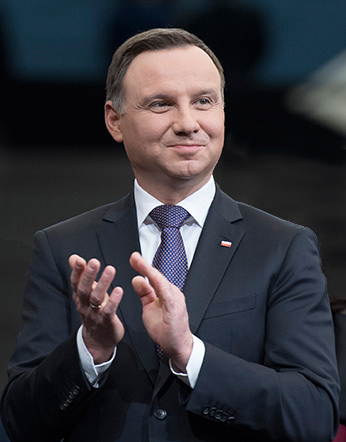The Montreal Holocaust Museum has decided to drop a long-planned exhibit about Jan Karski, the heroic Polish resistance fighter, in reaction to Poland’s controversial memory law.
The World Knew: Jan Karski’s Mission for Humanity, was scheduled to be shown at the museum from June 6 to Aug. 17 and was being presented in partnership with the Polish embassy. Karski was among the first to report eyewitness evidence of the annihilation European Jewry to the West.
The exhibit, which has been travelling throughout North America for the past few years, was created by the Polish History Museum in Warsaw, in co-operation with the U.S.-based Jan Karski Educational Foundation and the Polish Foreign Ministry.
“Given the current context, the conditions are not ideal to pay tribute to the memory of Jan Karski,” Alice Herscovitch, the museum’s executive director, announced on April 17.
READ: POLAND MUST COME TO GRIPS WITH HOLOCAUST RECORD
She explained that after Poland passed its so-called memory law – which criminalizes any attribution of “responsibility or co-responsibility to the Polish nation or state for crimes committed by the German Third Reich” – museum representatives met with embassy officials to express their concern that it would not allow for a full telling of the history of the Holocaust in Poland.
The museum felt that presenting an exhibition solely focused on a Polish hero would not offer a complete picture of how Poles treated the country’s Jews, both the positively and negatively, and would thereby play into the Polish government’s apparent attempt to sanitize the past.
The museum proposed adding testimonies of Polish Holocaust survivors and other materials that would recount Jews’ varying experiences, from being saved by their non-Jewish fellow citizens, to being denounced and even persecuted by them, she said. Anti-Semitism was real in Poland, and individual Poles were Nazi collaborators and perpetrators, she added.
The embassy was amenable, Herscovitch said, but since February, the climate has become acrimonious on the subject of Polish-Jewish relations.

Herscovitch noted that there have been at least three worrisome instances where Poland has invoked the law to curb expression, even beyond its borders: an Argentinian journalist was called out for something he wrote; Yad Vashem was taken to task for its information on the actions of Polish police during the war; and an Israeli rabbi in Poland had to clear his speech with authorities.
The museum has real concerns that it might be subject to scrutiny by the Polish government, she said.
Nevertheless, “This was not an easy decision to make,” said Herscovitch, who stressed that the decision in no way diminishes respect for Karski’s courage. She hopes conditions will some day allow the exhibit to be mounted and is avoiding the word “cancellation.”
Karski (1914-2000), a Christian Pole who was a courier for the underground, is described by the U.S. Holocaust Memorial Museum as one of the first to deliver eyewitness accounts of the gathering Holocaust to Allied leaders, including meeting with U.S. President Franklin Roosevelt, to no avail.
In addition to being recognized by Yad Vashem as among “The Righteous of the Nations,” Karski is an honorary citizen of Israel. In 2014, the Canadian Parliament extended Karski the rare tribute of “Hero of Humanity.”
The World Knew was shown at the Canadian War Museum in 2013 and Toronto’s Miles Nadal Jewish Community Centre the following year.
In her announcement, Herscovitch stated that, “The law now serves as a means to put pressure on education centres and the media. It is imperative that the application of the law be clearly defined. Our members, including several Polish Holocaust survivors, are very concerned about its scope.”

Despite an international outcry, the law was signed in February by Polish President Andrzej Duda, after being adopted by Parliament.
Herscovitch is concerned that those “not ascribing to an official narrative” could be prosecuted.
In its place, the museum will present its travelling exhibition, United Against Genocide: Understand, Question, Prevent, which was developed by the museum over several years with three other Montreal communities affected by genocide: the Armenian, Cambodian and Rwandan communities. It’s described as consisting of rare historical documents, archival photographs, interviews with experts and survivors’ testimonies that illustrate how mass atrocities start and escalate, and what can be done to stop them.
